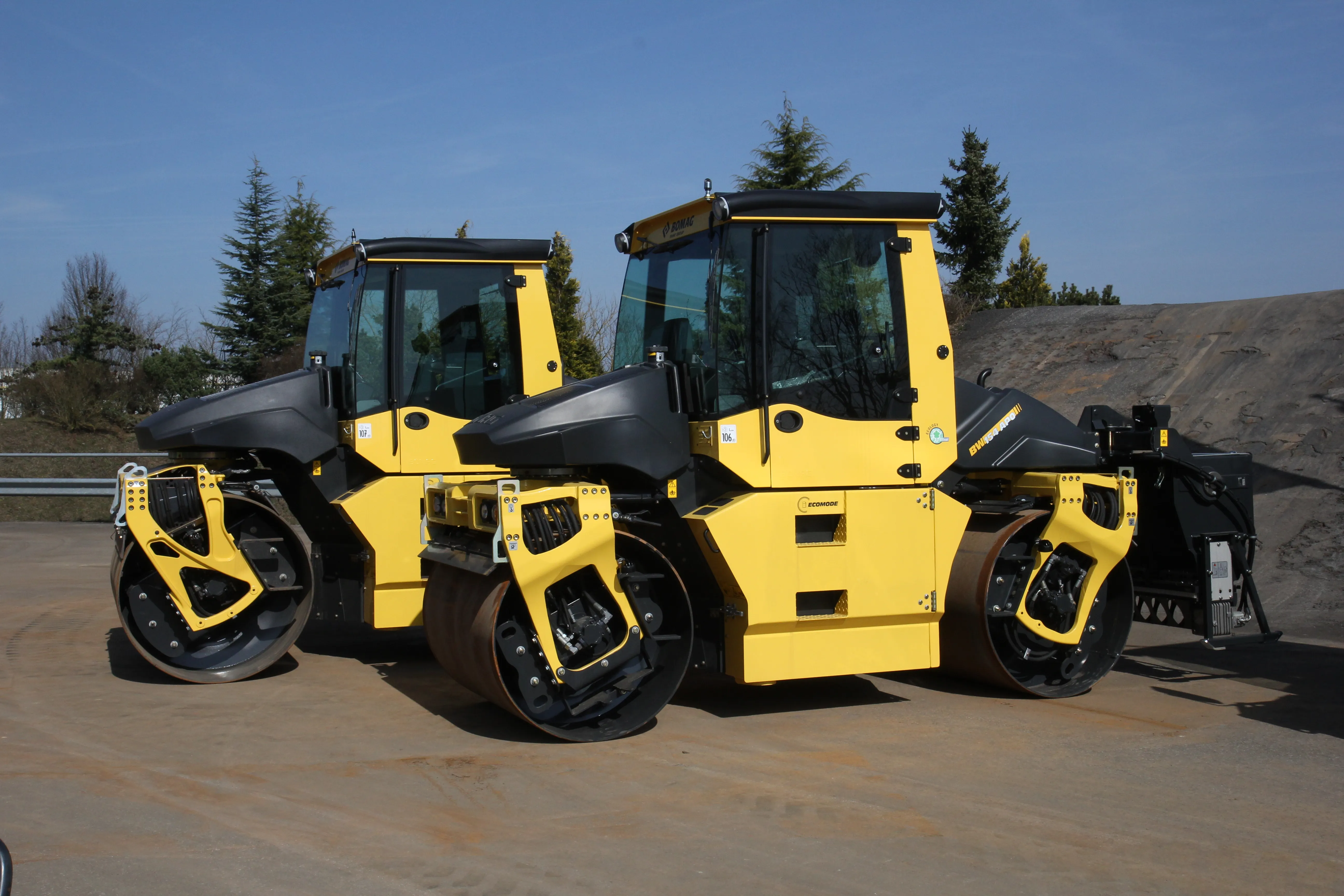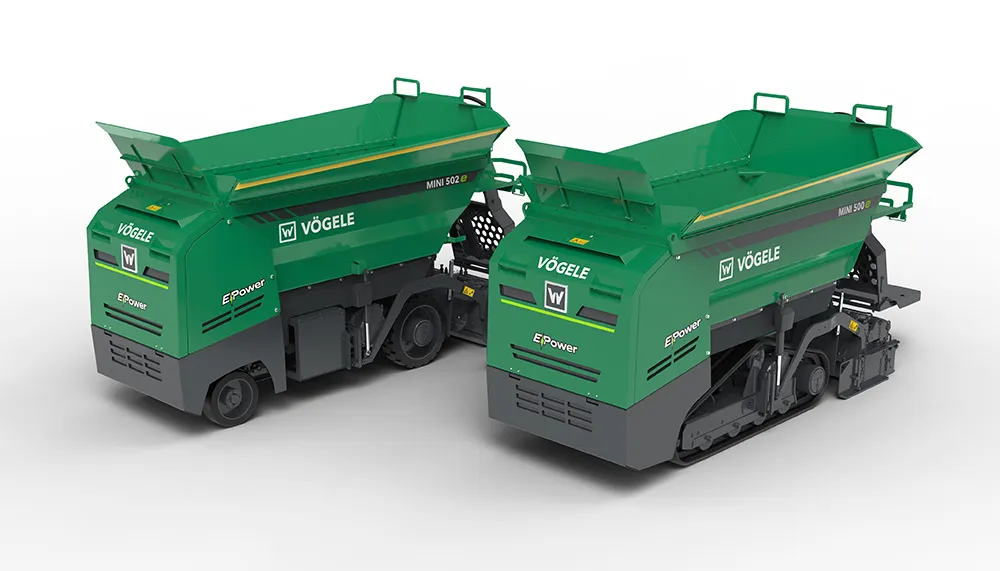
The firm says that its 360° technology allows it to offer a choice of three compaction technologies: standard vibration, the Tango oscillation system and Bomag Asphalt Manager.
The new version of the Tango technology benefits from a direct drive system, without drive belts. As a result the firm claims that its novel gear-driven system is maintenance free. The new drive system allows for the oscillation system to work on split drums, which was not possible with the earlier drive configuration. In addition the new rollers have wear-resistant drums made of special steel, which are said to allow a service life of 6,000 hours.
The oscillation system provides compaction without transmitting vibration and also offers benefits on jobsites such as bridges or asphalt joints or close to buildings. Using oscillation allows a greater degree of versatility for the contractor as the compactor can operate directly behind the asphalt paver, as well as on areas where the asphalt has begun cooling. Using oscillation allows compaction without the risk of breaking up the aggregates as density is achieved.









